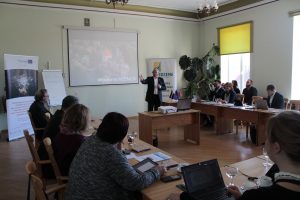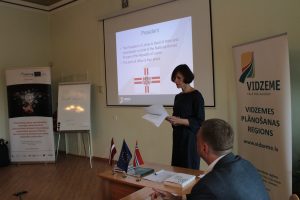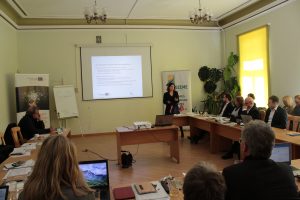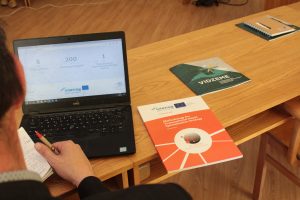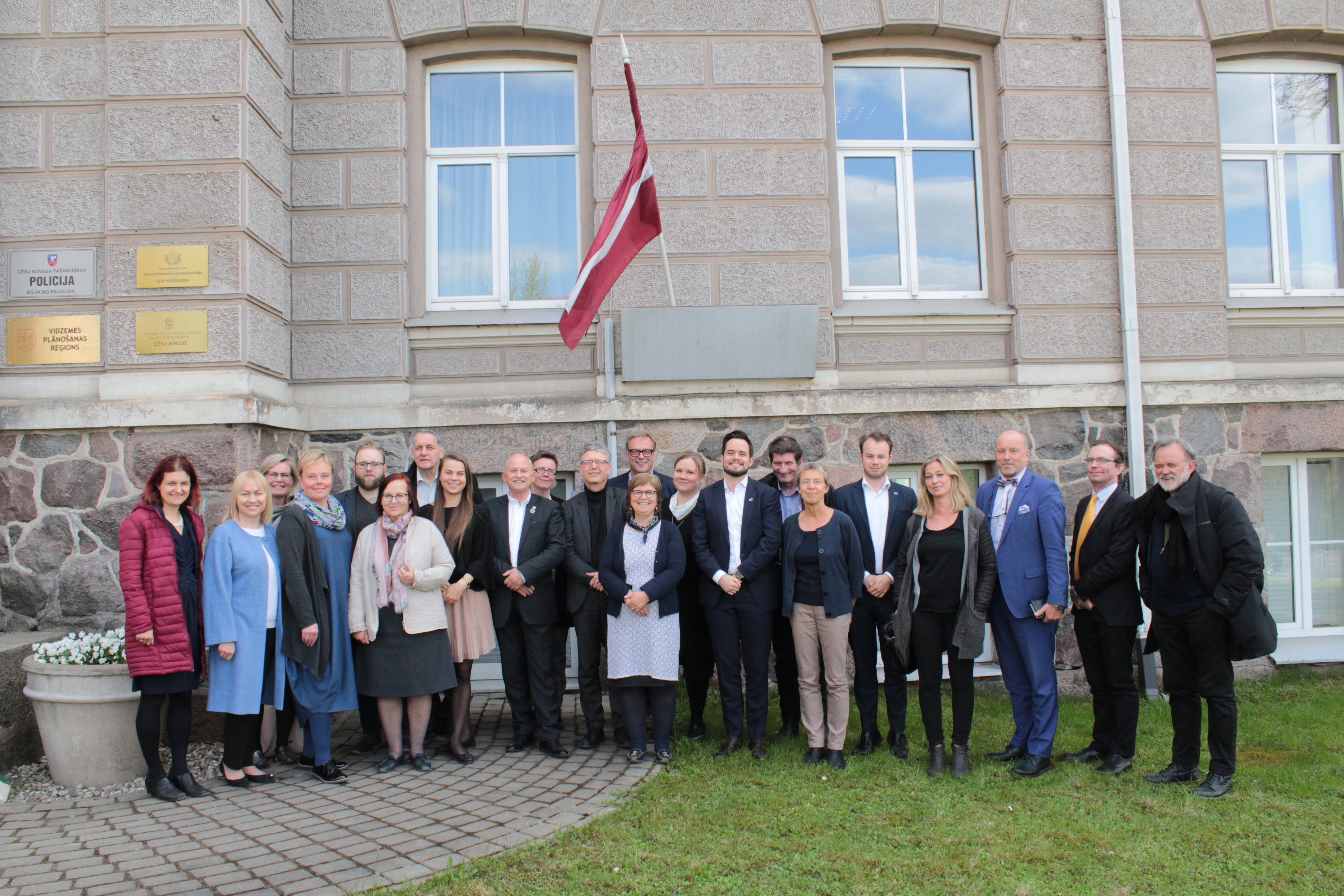Vidzeme Planning Region (VPR) in Latvia has long been developing strategic partnerships and cooperation with institutions and networks across Europe, strengthening the representation of the interests of Vidzeme region in a cross-border context, as well as the introduction of European knowledge and trends in the region.
During a two-day bilateral meeting on 9 and 10 May in Cesis, VPR introduced the Board of Baltic Sea States Sub-regional Cooperation (BSSSC) with Vidzeme development priorities and their implementation initiatives, already carried out regional development solutions and projects, and especially ‘GoSmart BSR’ project with its approach on finding common smart specialisation domains within macro-region. The BSSSC is a non-governmental political network organization that has been working with several regional government bodies from the Baltic Sea macro-region since 1993. They are a network of political organisations and a regional partner of the Council of the Baltic Sea States supporting and defending the interests of the Baltic Sea Region (BSR) in decision-making bodies – European governments, EU institutions and intergovernmental organizations. There were 20 participants of BSSSC Board at the meeting in Cesis – representatives of regional boards, regional councils and county networks of Norway, Germany, Finland, Estonia and Poland.
One of the most important agenda issues of BSSSC Board currently is to define BSSSC’s priority areas of action for the period post 2020. Methodology for development of transnational smart specialisation strategy, authored by ‘GoSmart BSR’ project team, was recognised as a very good example of strategic prioritisation. Taking into an account the already existing national and regional smart specialisation strategies is an opportunity to address those specific fields of interest from perspective of the regions and countries themselves. Such bottom-up approach and collaboration, based on stakeholder engagement matrix, can serve as a driver of regions and countries to later ensure their contribution to macro-regional development. Representatives of BSSSC pointed out the interest to take a deeper look at the methodology, to see whether it can be adjusted and used for their strategic prioritisation as well.
For the last year 7 regions across the BSR have worked to point out those few domains where interests in a form of smart specialisation priorities merge. Within common domains’ innovation-driven internationalisation support is now available in those regions to strengthen capacity of SMEs to apply smart specialisation approach.
“The goal of ‘GoSmart BSR’ project – translating smart specialisation strategies into practical joint actions to boost transnational cooperation among industry, the research and development sector and public authorities – is exactly what we need within the BSSSC,” said Jan Edøy, Director of Oslo Region European office and BSSSC representative in Brussels.
Dissemination activities of the methodology and transnational innovation brokerage system in all seven project partnering regions as well as in EU institutions have started. It is very important acknowledgement for ‘GoSmart BSR’ project to see how smart specialisation approach can be applied when defining the priority areas for networks and organisations across Europe. Such recognition once again proves that smart specialisation, equipped with appropriate instruments, can become an effective policy concept to take regions and their economies to higher, more competitive levels.
#innovation #smartspecialisation #GoSmartBSR #InnovateAcrossBorders #internationalisation



